
Clivo di Scauro fotografia stock. Immagine di italia 108114024
The most important attraction along the Clivo di Scauro is an archeological site known as the Roman Houses under the Celio Hill. These are located underneath the picturesque Santi Giovanni and Paolo Basilica, a popular church for Roman weddings. The most photogenic part of the street is crossed by a number of brick arches. It is likely that.
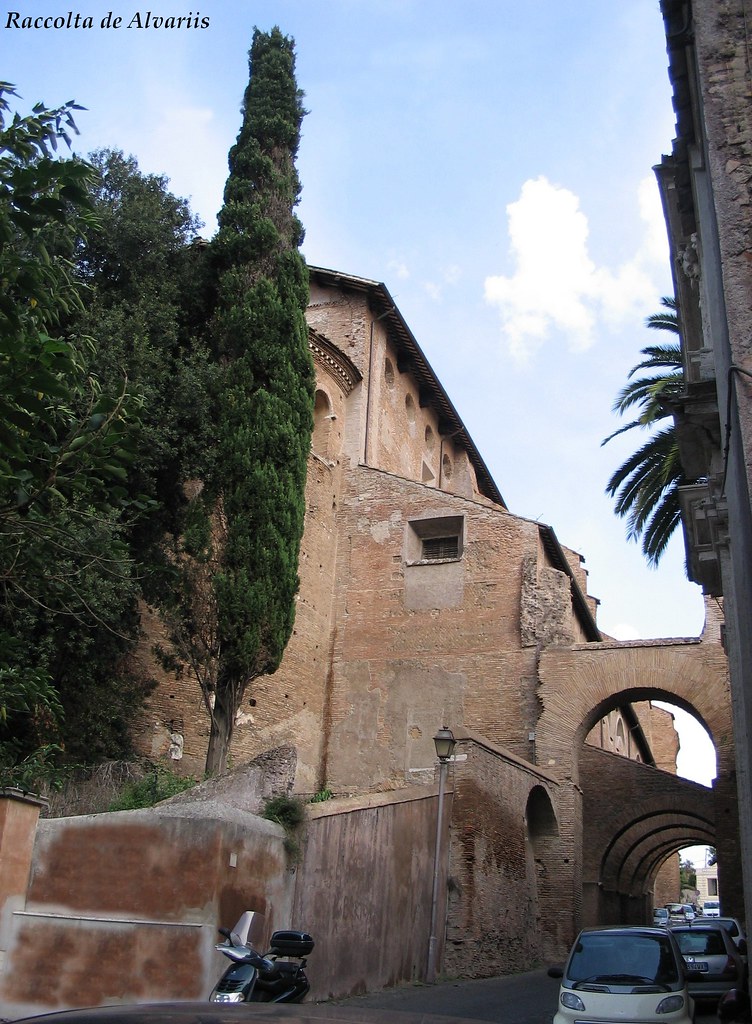
1854 2011 Clivo di Scauro Foto di Alvaro de Alvariis; Da W… Flickr
Entry to the houses, which now lie beneath the Basilica dei SS Giovanni e Paolo al Celio, is on the Clivo di Scauro. Read more. Contact. Address. Clivo di Scauro. Get In Touch. 06 7045 4544. https://www.caseromane.it. Suggest an edit to this attraction. Lonely Planet's must-see attractions.

Roma Sparita Clivo di Scauro
Il clivus Scauri ("clivo di Scauro") era una strada della Roma antica che saliva dalla depressione tra Palatino e Celio lungo il lato est di quest'ultimo fino alla sua sommità, dove oggi è piazza della Navicella. Ancora oggi la strada ha mantenuto il nome antico, nel tratto iniziale.
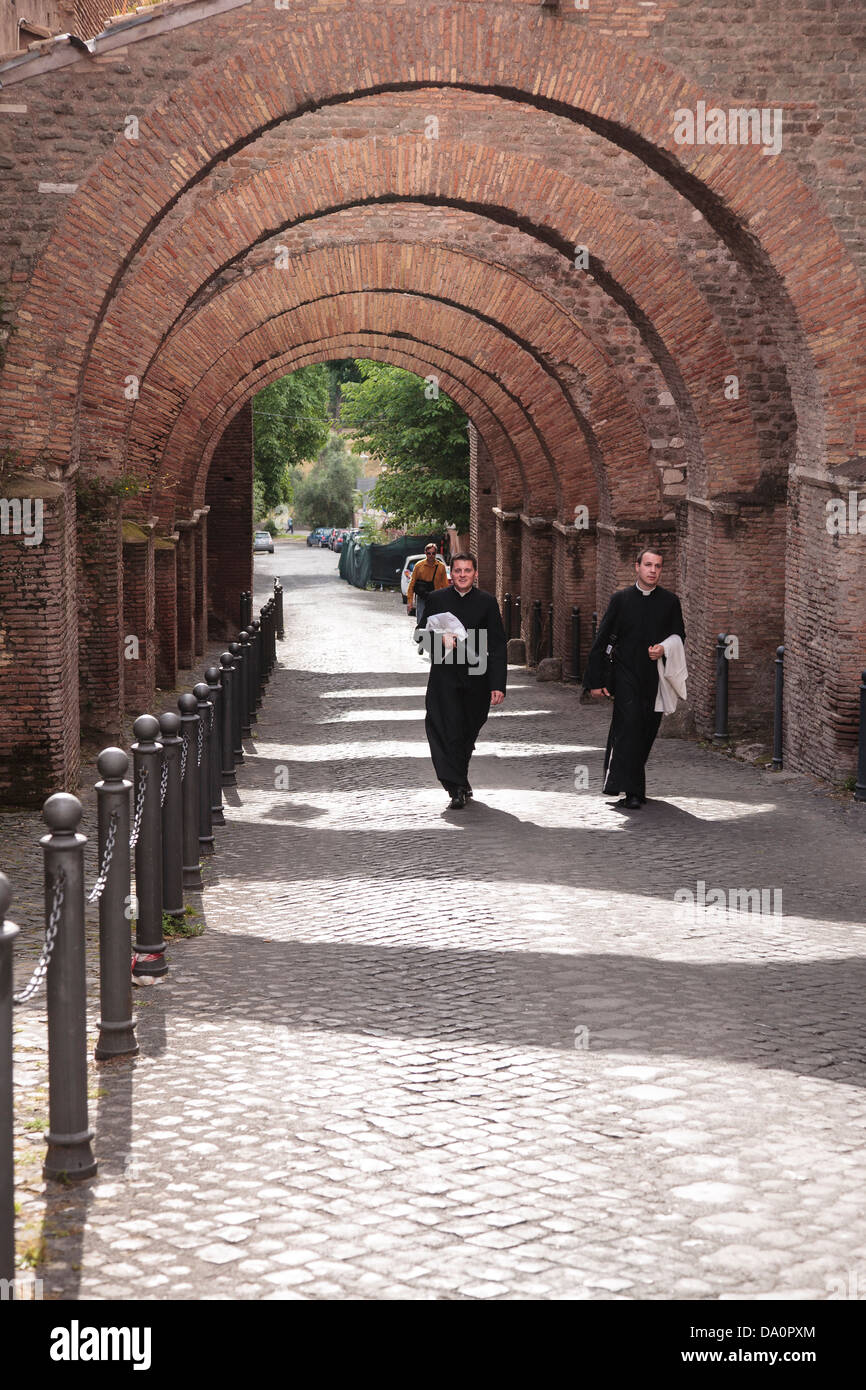
Two priests walking along clivodiscauro in Rome, Italy Stock Photo
The Clivus Scauri was an ancient Roman road that originally branched off from the road that connected the Circus Maximus to the Colosseum along the depression between the Palatine and Caelian hills of Rome. It followed the east side of the latter, up to its summit, which is today known as Piazza della Navicella.

Clivo di Scauro, vicino al Parco del Celio, Roma.
Address: Via del Clivo di Scauro. The Case Romane del Cielo are located under the Basilica of Saint John and Saint Paul. But there's a different entry and the church dress codes do not apply. I tried to visit the basilica as well, but it was closed. Hours: Open from 10:00 am to 4:00 pm on Monday, Wednesday, Friday, Saturday, and Sunday.
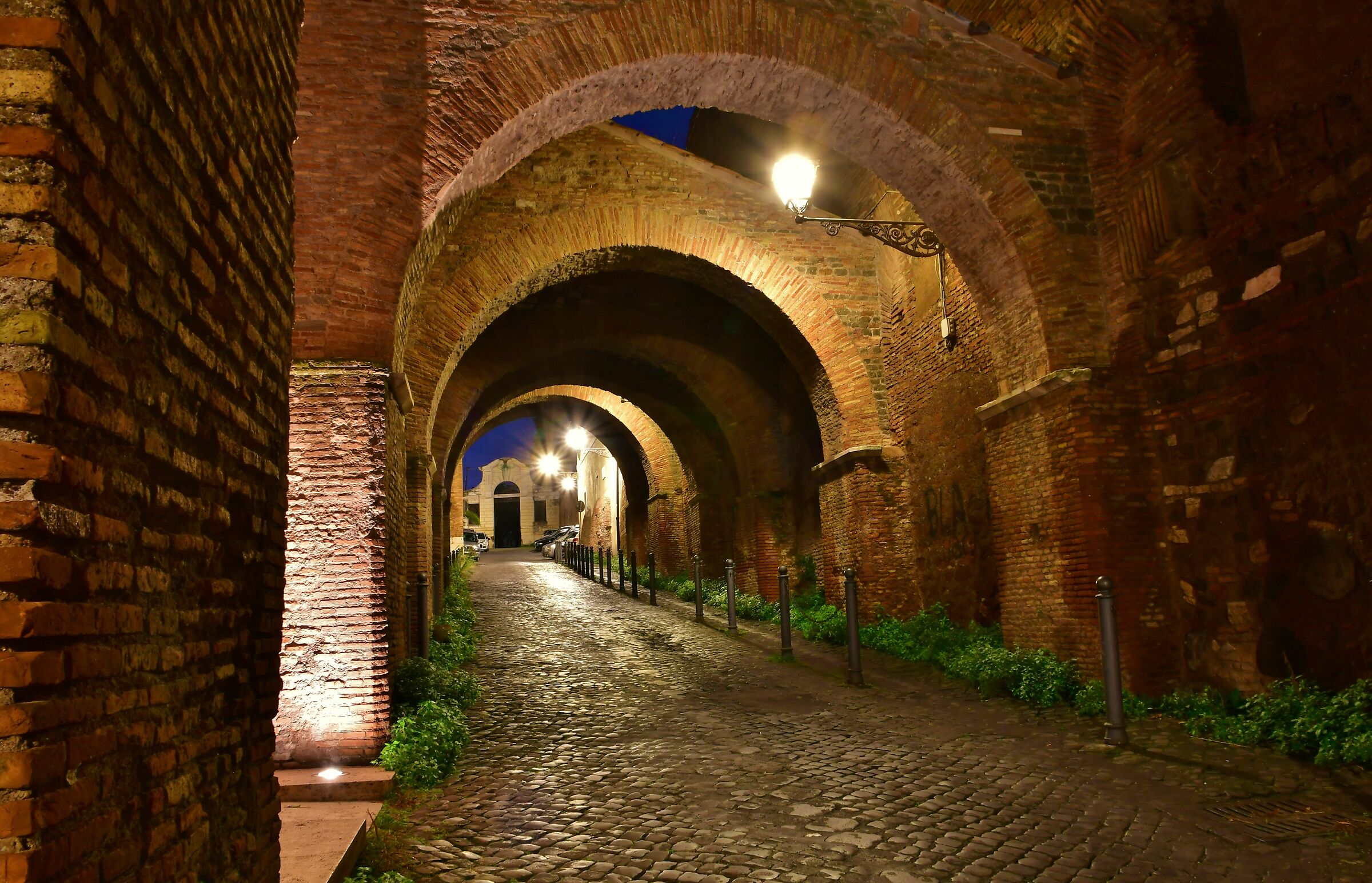
Notturno Clivo di Scauro JuzaPhoto
They were officers at the court of emperor Constantine (312 - 337 AD) who made Christianity legal in Rome. 24 years later, emperor Julian the Apostate (361 -363 AD) attempted to revert Rome back to paganism, and had John and Paul beheaded on the night of January 26th-27th, 361 AD after they refused to serve in a military campaign.

Roma Clivo di Scauro, by Luca Parravano Rome, Italy, Architecture
Address: Clivo di Scauro - Rome (tel. +39 06 70454544 (Monday to Friday 10.00-13.00, for reservations). Opening hours: 10.00-13.00 and 15.00- 18.00. Closed: Tuesdays and wednesdays. Admission: 8 Euros (concessions 6 Euros, children younger than 12 free). Note that, during the Covid Crisis, the Green Pass is required. History Fresco
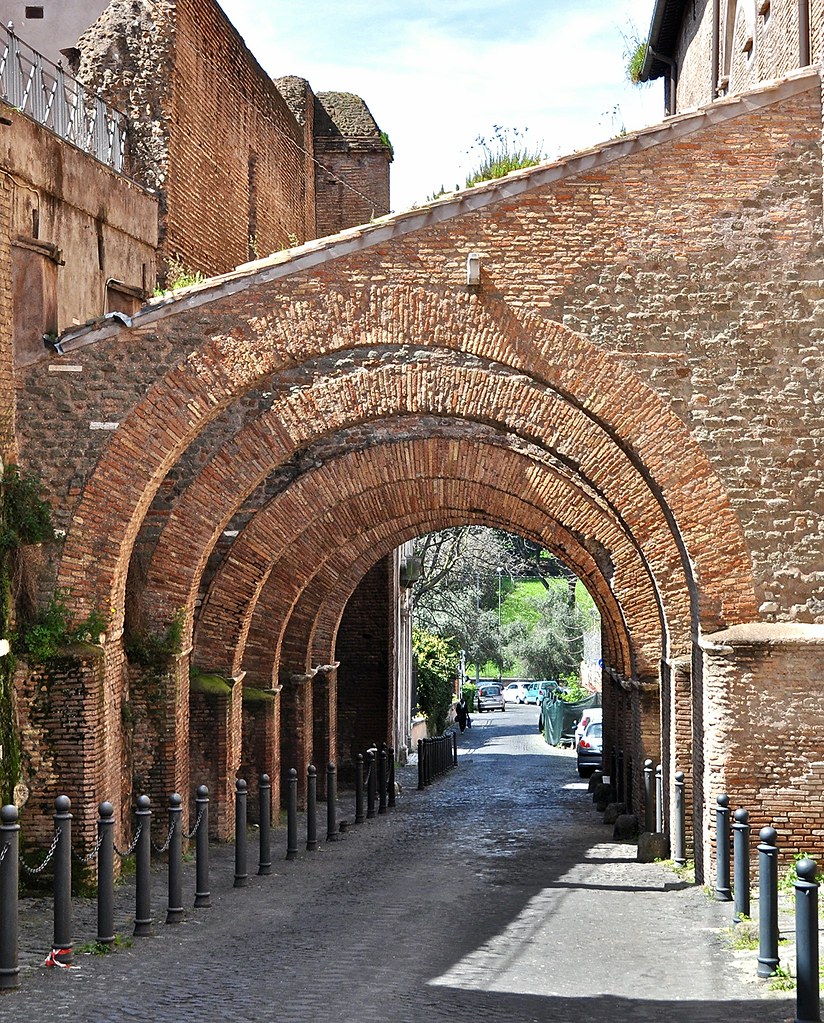
Clivo di Scauro Tunnel of 13th Century arches over the lan… Flickr
Clivio di Scauro is a beautiful ancient Roman road between the Colosseum and the Circo Massimo. One end of the street is almost into the Palantine Hill and the opposite end leads into Via di San Paolo della Croce, which goes through the 10AD, Arch of Dolabella.
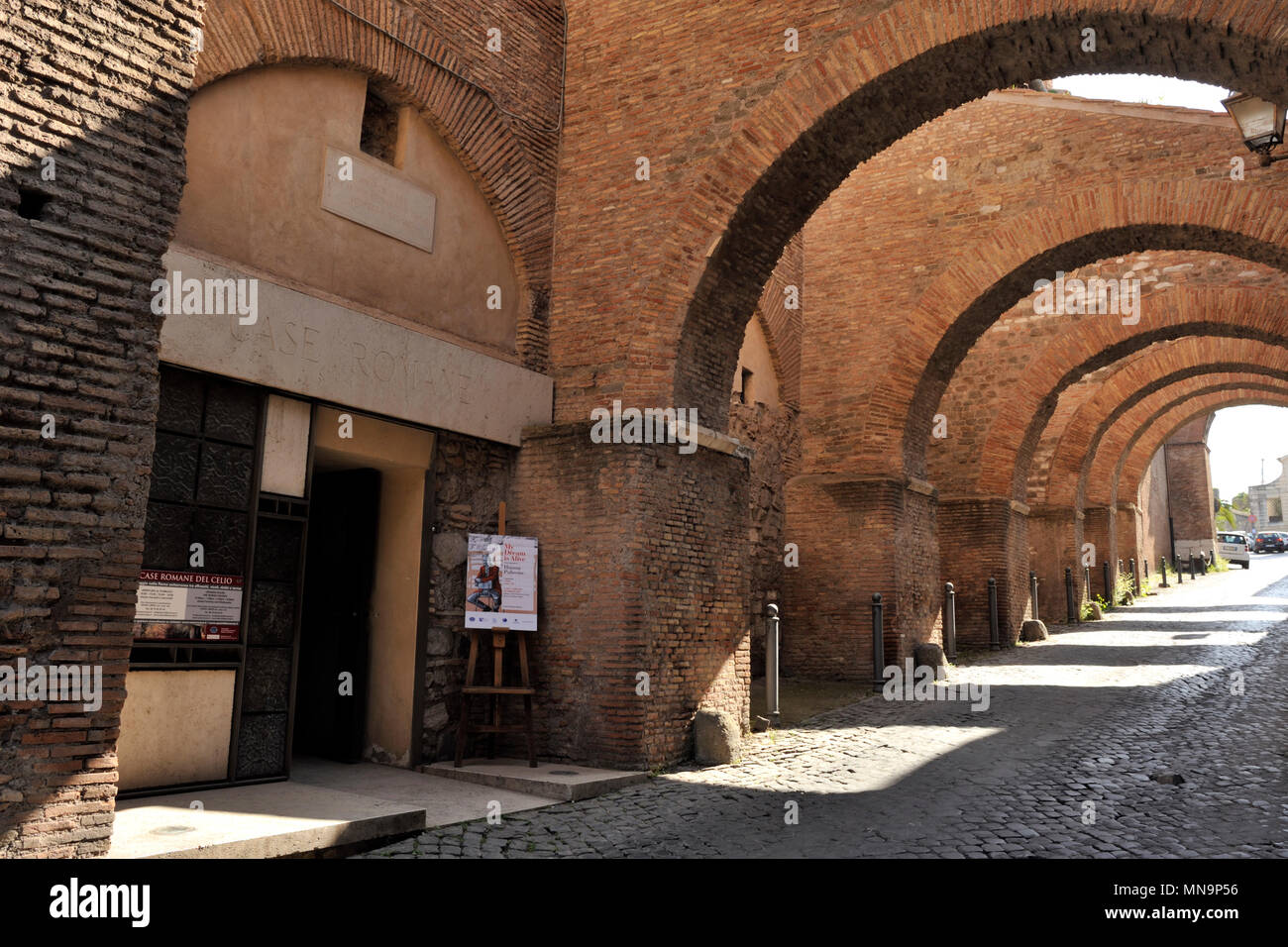
Italy, Rome, Celio, Clivo di Scauro, case romane del Celio and medieval
Continuing along Clivo di Scauro gives the feeling of being anywhere other than Rome, it feels almost country like. The down side of this street is that you can't just daydream as you walk, to do so would increase the likelihood of being run down by the infrequent passing traffic. These drivers definitely believe they own the road.

Clivio di Scauro, Roma Italy travel, Rome, Roman roads
The Caelian Hill (Monte Celio) is one of the seven hills of Rome, running south-east from the Colosseum. In classical times it was a fashionable residential district, and home to the Temple of Claudius. Today the hill is dominated by the grounds of the Villa Celimontana, a former Renaissance palace and vineyard.

Roma Clivo di Scauro, by Luca Parravano Romantic Italy, Europe
Clivio di Scauro is a beautiful ancient Roman road between the Colosseum and the Circo Massimo. One end of the street is almost into the Palantine Hill and the opposite end leads into Via di San Paolo della Croce, which goes through the 10AD, Arch of Dolabella.

Clivo di Scauro Rome, ancient street with picturesque arches.
The Caelian Hill of Rome (In Italian: il Celio; in Latin: Caelius) is one of the historical seven hills of Rome. Located between the Colosseum and the Baths of Caracalla, in Rome City center, it is a beautiful hill with many interesting attractions and churches. Despite this central location, the Caelian Hill is largely ignored by tourists.

The 11 Best Photo Spots in Rome Rome Private Guides Blog
Giovanni e Paolo, today the Clivo di Scauro Clivus Suburanus. The Clivus Suburanus was the ancient road leading up from the Subura, behind the imperial fora between Oppius and Cispius. The lower part is identical with the modern Via in Selci, named from the Roman paving-stones (selci) which were visible until the middle of the 19th century.

Clivo di Scauro Il clivus Scauri ("clivo di Scauro") era u… Flickr
Description. Winding their way along the southern slopes of the Caelian Hill, the Clivo di Scauro and the Via San Stefano Rotondo follow the same route as the Clivus Scauri, a medieval (and ancient) road that connected the Palatine Hill to the neighborhood of Saint John Lateran. It was one of two major roads leading to the Lateran area, which.

The Clivus Scauri Clivio Di Scauro, Old Roman Road on the Celio Hill in
Together with the excavations of San Clemente, the Roman Houses of the Celio represent one of the most fascinating places in underground Rome. for the presence of original decorations and for the events that over the centuries have affected profound changes to the structure.
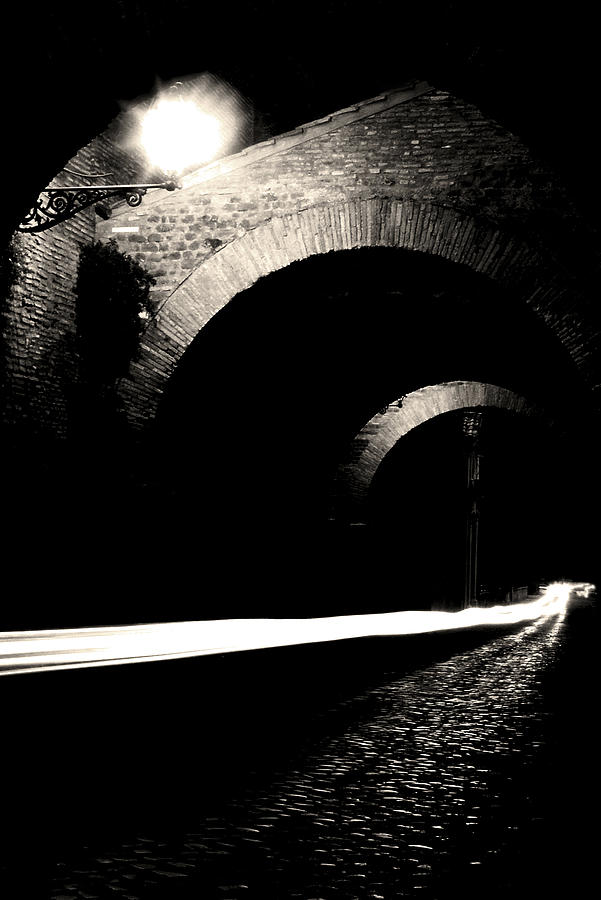
Clivo di Scauro Photograph by Fabrizio Troiani
Clivo di Scauri Winding their way along the southern slopes of the Caelian Hill, the Clivo di Scauro and the Via San Stefano Rotondo follow the same route as the Clivus Scauri, a medieval (and ancient) road that connected the Palatine Hill to the neighborhood of Saint John Lateran.